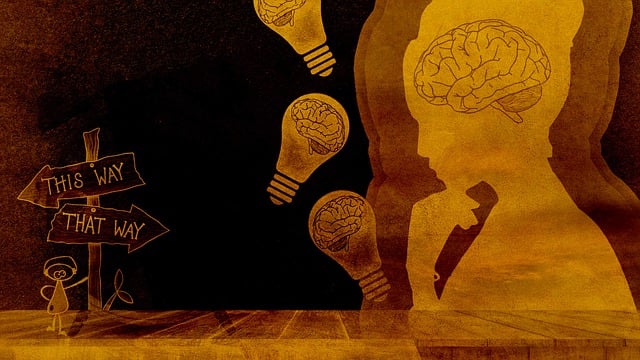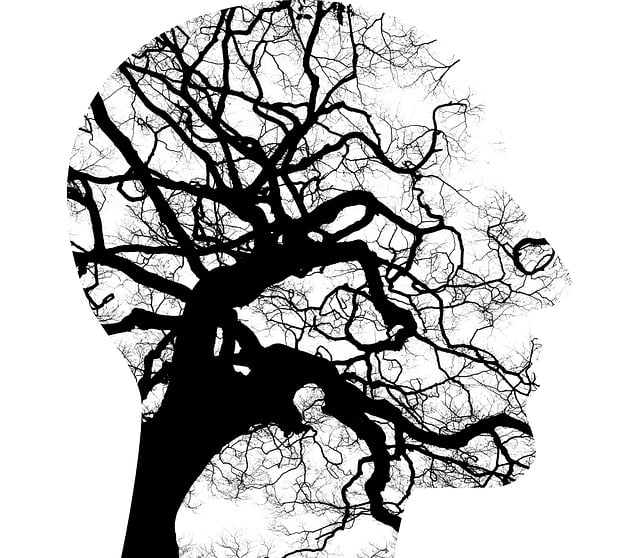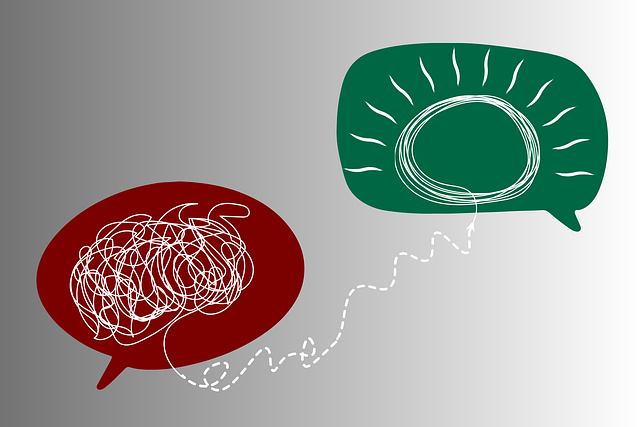Codependency significantly impedes personal growth in therapy among young adults, as their self-worth becomes overly reliant on external validation. This manifests as difficulties in setting boundaries, asserting needs, and making decisions without reassurance, impacting relationships, mental health, and stress levels. Overcoming codependency is vital for young adults; therapy should focus on building resilience through self-acceptance, assertiveness, and a strong sense of self. Mindfulness meditation emerges as a powerful tool, helping them develop self-awareness, navigate complex relationships, and manage stress. Incorporating mindfulness into daily routines through mental health education programs can prevent burnout and foster healthier relationship dynamics. Creating a dedicated mindfulness meditation space at home is a transformative step for young adults in therapy, offering a peaceful retreat to enhance their journey.
“Unwind and embrace tranquility with mindfulness meditation—a transformative practice gaining prominence in modern self-care routines. For young adults navigating codependency issues, this ancient technique offers a powerful therapy. Discover how mindfulness can disrupt unhealthy patterns and foster independence. Learn to create a sanctuary for your mind through space preparation and simple practices. Overcome challenges and unlock lasting benefits by integrating mindfulness into daily life. This comprehensive guide explores the impact on young adults, providing tools for personal growth.”
- Understanding Codependency and Its Impact on Young Adults
- Mindfulness Meditation: A Powerful Tool for Self-Care
- Setting the Scene: Creating a Sacred Space for Practice
- Techniques to Navigate Challenges During Meditation
- Integrating Mindfulness into Daily Life: Long-Lasting Benefits
Understanding Codependency and Its Impact on Young Adults

Codependency, a complex psychological phenomenon, often goes unnoticed, especially among young adults. This subtle yet powerful dynamic occurs when an individual’s sense of self-worth and identity becomes overly reliant on external validation and the approval of others. In the context of therapy for young adults, codependency can be a significant barrier to personal growth and independence. Many young adults struggle with establishing healthy boundaries, asserting their needs, and making decisions without seeking constant reassurance from others.
The impact of codependency can be far-reaching, affecting various aspects of an individual’s life. It may lead to difficulties in romantic relationships, friendships, and the workplace, as well as contribute to heightened stress levels and poor mental health. Building resilience is crucial for young adults navigating codependency; therapy should focus on helping them develop self-acceptance, assertiveness, and a strong sense of self. By understanding their emotional triggers and learning effective stress reduction methods, they can enhance their ability to manage relationships and make informed decisions, fostering a healthier and more balanced lifestyle.
Mindfulness Meditation: A Powerful Tool for Self-Care

Mindfulness meditation has emerged as a powerful tool for self-care, especially among young adults grappling with codependency issues. This ancient practice involves focusing on the present moment, observing thoughts and emotions without judgment. By cultivating mindfulness, individuals can develop a deeper sense of self-awareness, enabling them to understand their triggers and reactions better. This is particularly beneficial in navigating complex relationships and managing stress, which are common challenges for young adults dealing with codependency.
Incorporating mindfulness meditation into daily routines can be transformative. Mental health education programs designed around this practice often include self-awareness exercises that help individuals recognize patterns of unhealthy attachment. Moreover, mindfulness promotes burnout prevention by fostering a state of calm and resilience, allowing young adults to respond mindfully rather than reactively in demanding situations. Through regular practice, they can enhance their overall well-being and cultivate healthier relationships.
Setting the Scene: Creating a Sacred Space for Practice

Setting the scene for your mindfulness meditation practice is akin to creating a sanctuary—a personal space where you can retreat to nurture your mental health and well-being. For young adults dealing with codependency, establishing this sacred space becomes a powerful tool in their therapy journey. Start by finding a quiet corner in your home that feels calming and inviting. This could be a cozy nook with soft lighting or a peaceful balcony offering a glimpse of nature. Ensure it’s a place where you can sit comfortably for an extended period without distractions.
Transform this space into a haven for mindfulness by incorporating elements that resonate with you. Perhaps it’s burning incense or playing soothing music to set the tone. Some may prefer to surround themselves with plants, crystals, or meaningful artifacts that inspire a sense of calm and positive thinking. Remember, your sacred space should be tailored to enhance your mental health awareness and reinforce the mind over matter principles essential for overcoming codependency.
Techniques to Navigate Challenges During Meditation

Meditation can be a powerful tool for self-improvement and mental well-being, especially for young adults navigating challenges like codependency. When facing difficulties during practice, it’s essential to remember that mindfulness is a skill that takes time to develop. Be patient with yourself and embrace each moment as an opportunity for growth. One effective technique is to focus on your breath—a simple yet profound method to anchor yourself in the present moment. Notice any thoughts or emotions arising without judgment and gently bring your attention back to your inhalation and exhalation.
Additionally, practicing positive thinking can significantly aid in overcoming obstacles. Encourage a mindset of self-compassion and kindness towards yourself. If you find yourself stuck in negative thought patterns, try reframing them into something more constructive. For instance, instead of focusing on what’s wrong, shift your attention to the aspects of your life that bring you joy and gratitude. This coping skills development can enhance self-esteem improvement, allowing you to better confront challenges with resilience and a sense of inner peace.
Integrating Mindfulness into Daily Life: Long-Lasting Benefits

Integrating mindfulness into daily routines offers young adults a powerful tool to navigate life’s challenges and fosters long-lasting mental well-being. Beyond its popularity as a therapy for young adults struggling with codependency, mindfulness meditation has proven effective in various settings. Regular practice can significantly enhance stress reduction methods, promoting a calmer and more focused mind. This simple yet profound shift can positively impact one’s overall quality of life.
By weaving mindfulness into everyday activities, individuals cultivate a deeper sense of awareness and presence. This heightened consciousness encourages better decision-making and emotional regulation skills, which are crucial for managing codependent tendencies. Moreover, it enhances communication strategies by improving active listening and empathy, benefiting both personal relationships and professional interactions. Mindfulness meditation’s ability to create this holistic transformation is what makes it a valuable asset in the pursuit of mental health and self-care.
Mindfulness meditation offers young adults a transformative path to heal from codependency, fostering self-care and long-lasting emotional well-being. By creating sacred spaces, navigating challenges with resilience, and integrating mindfulness into daily routines, individuals can break free from unhealthy dependencies and embrace a more balanced, fulfilling life. This practice serves as a powerful therapy for young adults navigating the complexities of codependency, ultimately enhancing their overall mental health and quality of life.














